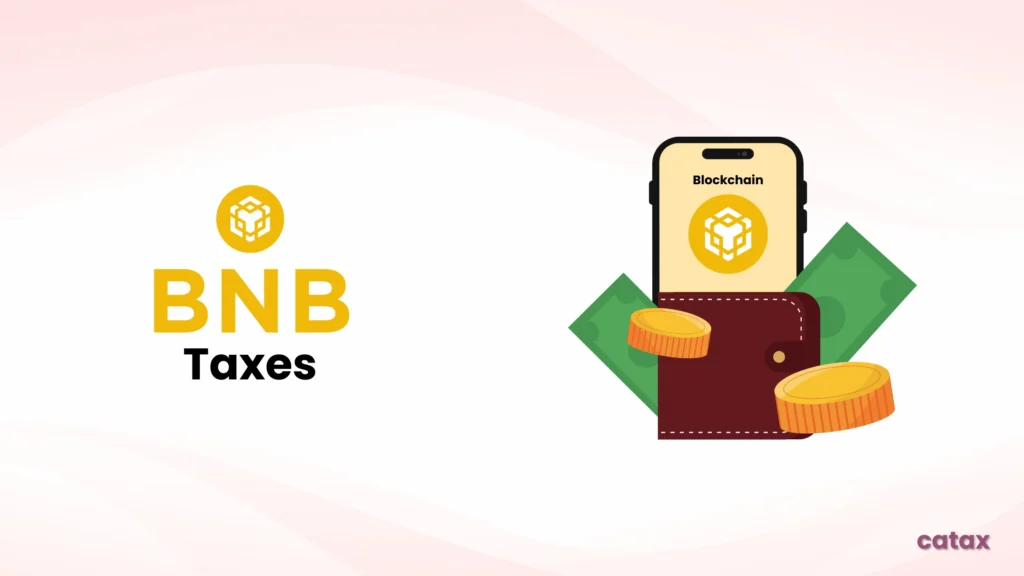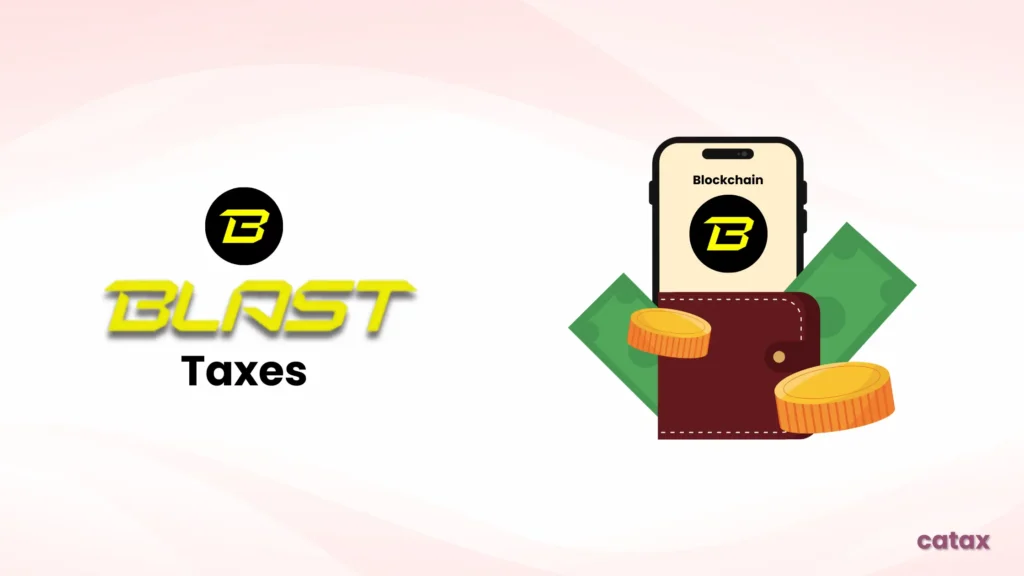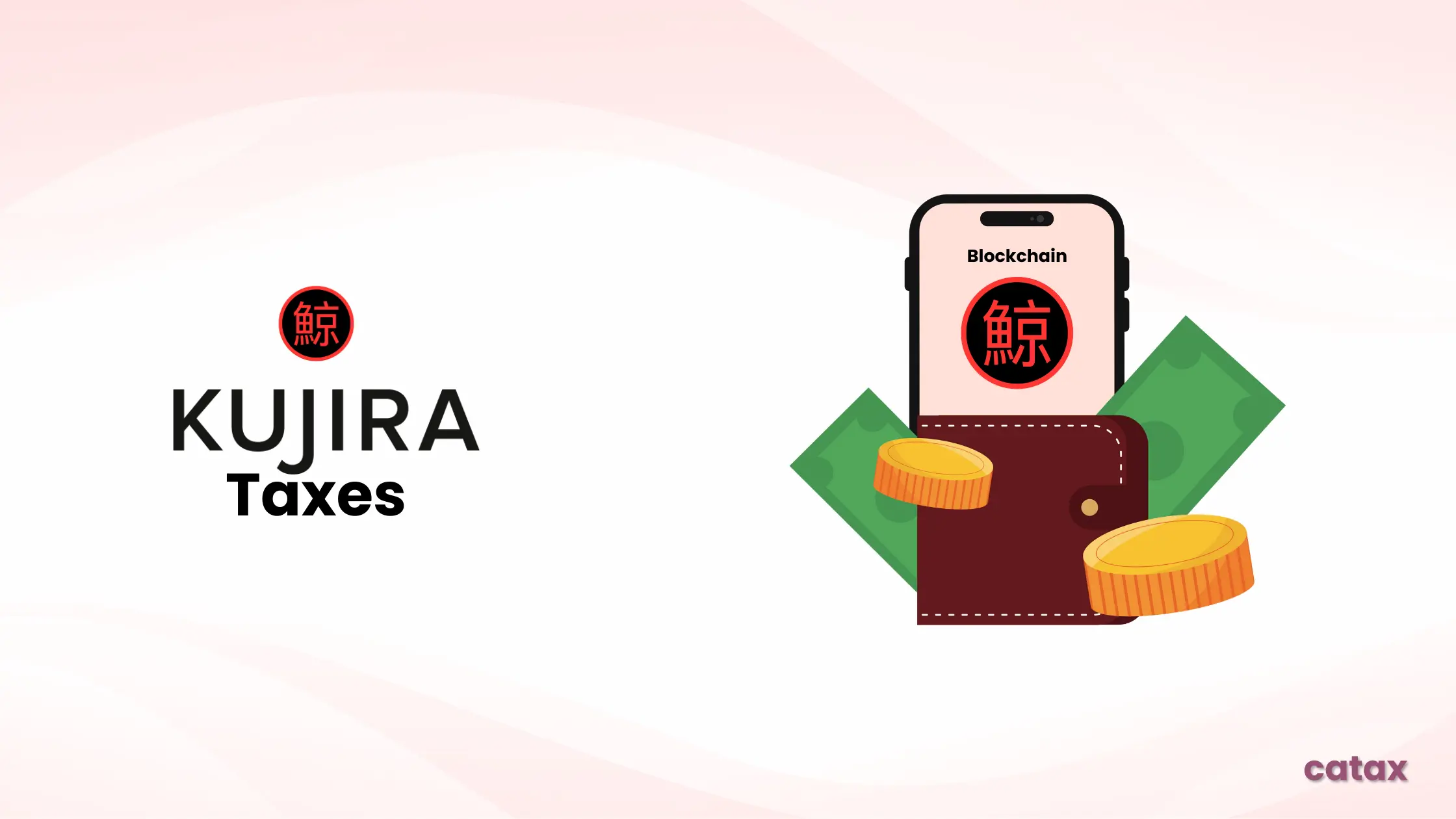Cryptocurrency tax rules vary by country, and Kujira (KUJI) taxes transactions may be taxed based on local laws. Whether you buy, sell, trade, or stake KUJI, understanding how tax authorities classify these actions helps you stay compliant and avoid penalties.
This guide simplifies Kujira taxes to help you manage your obligations confidently and accurately.

How to Connect Your Kujira Wallet to Catax
To track your Kujira (KUJI) transactions and calculate taxes easily, follow these steps to connect your wallet to Catax:
- Open your Kujira wallet or use a supported block explorer (such as Keplr, Leap, Cosmostation, or another compatible wallet).
- Copy your public wallet address from your Kujira wallet.
On Catax:
- Log in to Catax and select your country.
- Select Chain, then search for Kujira Wallet.
- Paste your public address and click Connect.
Once connected, Catax will automatically track your KUJI transactions and simplify your crypto tax calculations.
Calculate My Taxes ➤Are Kujira (KUJI) Transactions Taxable?
Yes, in most countries, Kujira transactions are taxable. Governments may classify KUJI as a capital asset, property, or income—depending on how you use it.
When Do You Have to Pay Taxes on Kujira?
You may owe taxes when you:
- Sell KUJI for a profit – If you sell Kujira for more than you paid, the profit is usually taxed as capital gains.
- Trade KUJI for another cryptocurrency – Swapping KUJI for tokens like Bitcoin or Ethereum can be a taxable event.
- Use KUJI to buy goods or services – Spending KUJI might trigger capital gains tax if its value increased since purchase.
- Earn KUJI from staking or participation rewards – Many countries treat this as income when received.
- Receive KUJI as payment – Getting paid in KUJI for work or services is generally considered income and taxed accordingly.
Tax regulations vary widely, so always check how KUJI transactions are taxed in your country to stay compliant.
Can You Deduct Trading Fees and Other Costs?
Kujira users often wonder if they can deduct trading, transaction, and security-related costs from taxable income. This depends on local tax laws.
Some countries allow deductions for:
- Trading fees paid when buying or selling KUJI
- Network fees for transferring KUJI between wallets
- Costs for secure storage, such as hardware wallets or key protection
Other countries may limit deductions to:
- Only the original cost of acquiring KUJI, excluding fees like transfers or exchange costs
To avoid errors, review your local crypto tax laws for approved deductions.
How Is Kujira (KUJI) Taxed Based on Holding Period?
The tax you pay on KUJI profits may depend on how long you held it before selling:
- Short-term holdings (less than a year) – Typically taxed at higher, income-equivalent rates
- Long-term holdings (more than a year) – May be eligible for lower capital gains tax rates in some jurisdictions
- Flat-rate systems – Some countries apply a fixed rate regardless of the holding period
Understanding your country’s rules helps you plan your KUJI investments more effectively and reduce your tax burden where possible.
You can also check out our Country-Specific Guide for Crypto in Your country. This guide provides insights on regulations, tax implications, and compliance measures breifly explained for each country.
How Is Staking Income Taxed?
Kujira (KUJI) staking rewards can be a great source of passive income, but how they’re taxed varies by country. Some tax authorities apply taxes when rewards are received, while others only tax when the rewards are sold or exchanged. How Countries Tax Staking Rewards:
- Taxed as income – In some countries, staking rewards are treated like regular income, meaning taxes are due as soon as you receive KUJI. These are usually taxed at your applicable income tax rate.
- Taxed as capital gains – Other countries only tax staking rewards when you sell or exchange them. In this case, only the gains from the sale are taxed.
If you stake KUJI, knowing how and when your country applies tax is key to avoiding unexpected tax bills. Some jurisdictions even tax staking rewards you haven’t sold.
To stay safe, always check how staking rewards are taxed in your region before starting.
Can You Claim Kujira Losses for Tax Benefits?
Not every KUJI trade results in a profit—and if you sell at a loss, that loss may help reduce your tax burden. How Different Countries Handle Crypto Losses:
- Loss offsets – Some countries allow losses from KUJI to offset gains, meaning you only pay taxes on the profits that remain.
- Loss carryforward – If you don’t make a profit this year, certain countries allow you to carry forward your KUJI losses to offset gains in future years.
- Limited deductions – In other regions, crypto losses may not be tax-deductible at all.
Keeping accurate records of your transactions is essential to reporting losses properly and claiming benefits where allowed.
How to Stay Compliant with Kujira (KUJI) Tax Rules
Crypto tax laws are constantly evolving, so staying compliant is crucial. To avoid fines or audits:
- Understand your country’s KUJI tax rules – Is it taxed as capital gains, income, or business revenue?
- Know what expenses you can deduct – Some countries allow deductions for trading fees, staking rewards, and more.
- Track every KUJI transaction – This includes buying, selling, trading, staking, and spending KUJI.
- Use a crypto tax tool like Catax – Catax simplifies tax calculations and makes it easy to track your KUJI activities.


